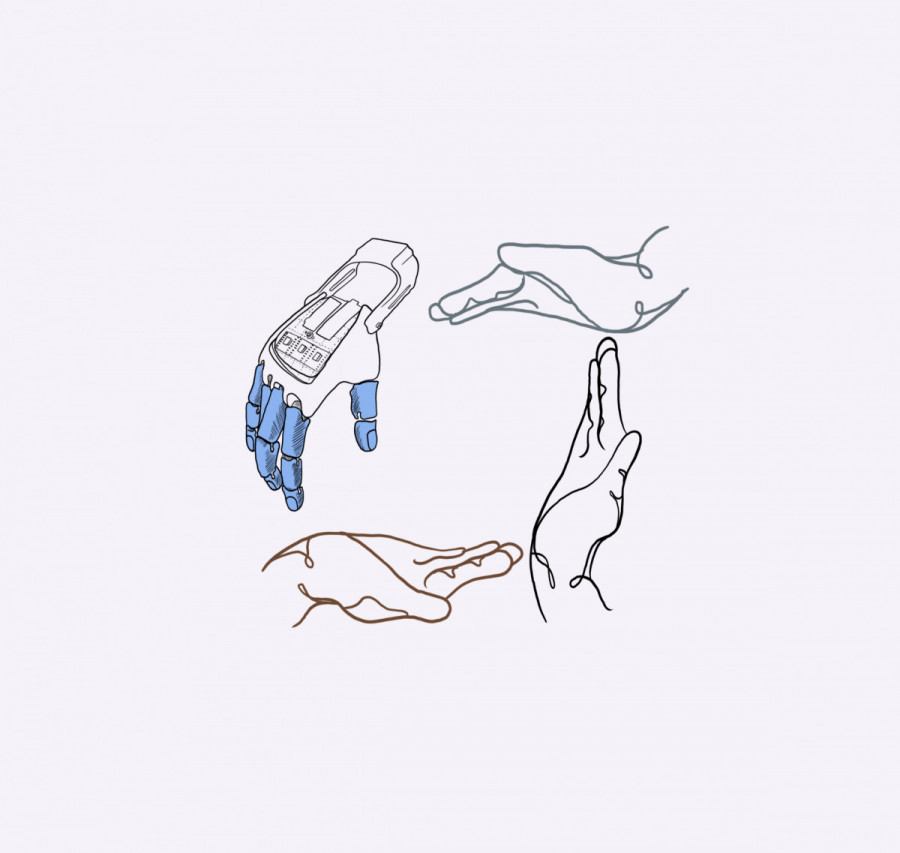Disabled Spoonies and Friends: Mobilizing for Change
Meet The First Student Club For and By Disabled Concordians
In the Fall 2022 semester, a collective of disabled Concordia University students launched Disabled Spoonies and Friends, a non-hierarchical collective by and for students with disabilities.
This club is the first of its kind in the university’s history, according to co-founder Mimi Boysen.
The foundation of the club “came from a need to connect with people that lived similar experiences of being disabled in a place like academia,” explained Gabriella Dery, one of the club’s co-organizers.“[It] reminds you of your disabilities every single day [...] We are trying to fill in the gaps where the Access Centre has really let us down and is unable to provide the services that we all need,” Dery said.
Club members expressed the importance of such a group on campus. “We wanted to meet other students who are also disabled and support each other and create a mutual care web,” said Elise, a co-organizer. “One of the goals of the club is to listen to disabled students and believe us when we are telling you what we want and need,” they added.
Disabled Spoonies and Friends allows disabled students to convene and discuss how academic and student spaces continuously disadvantage them, added member Cory Shallow.
Specifically, members of the club speak out against Concordia’s alleged micro and macro aggressions towards disabled students. “I had some pretty horrific run-ins with Concordia and it is really not okay,” mentioned Boysen. They recalled instances in which the administration doubted their disability, made it difficult to access accommodations, assumed they were less capable than able-bodied students and silenced them from speaking about their experiences.
“I want to shed light on what people are actually going through,” said Boysen.
Creating the club did not happen overnight, highlighted Boysen. “I have been trying to create a group like this for two years,” they said. Having been diagnosed with autism at 19 years old, they learnt how deep the stigma around disability actually runs.
“The reason I created [this club] was because it didn’t exist, which is really sad,” Boysen said. They spoke to several disabled activists and founders of clubs from different universities to know where to begin.
The first step was finding a name. “We wanted something that wasn’t syndical and more fun,” Boysen said.
Their name, Disabled Spoonies and Friends, is based on the Spoon Theory—an analogy used to illustrate the reality of those living with a chronic illness. Boysen explained that each individual has a set number of spoons that they use throughout the day to do various activities, including getting out of bed and making breakfast.
This concept, Boysen added, normalizes the everyday life of disabled individuals because “no one is at fault for the things [they] can’t do today because [they] just don’t have the spoons.”
Last semester, the club held weekly meetings, both in-person at the Frigo Vert and virtually, to ensure accessibility, explained Boysen. At meetings, the group brainstormed services for the disabled community, such as peer support groups and events, including a speed dating activity, they added.
While the club is still in its initial stages, members have discussed the impact this community has had on them. Member and Concordia alumni Aline said that the club offers an alternative space to the Access Centre for disabled individuals to gather.
“One thing that really warmed my heart,” Elise added, “was seeing a bunch of disabled people take up space in a public setting in an accessible way as much as possible—[...] it was really beautiful.”
Their upcoming meetings and events are advertised on the @disabledspoonies Instagram page for anyone to attend.







_600_375_90_s_c1.jpg)